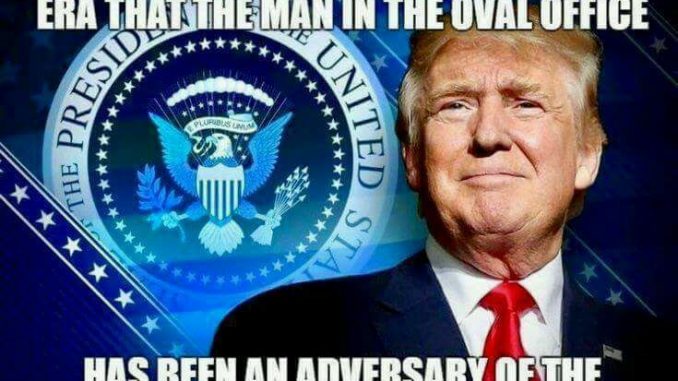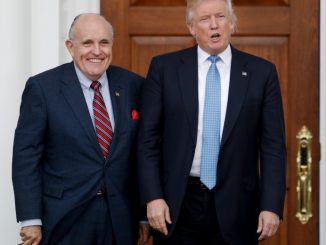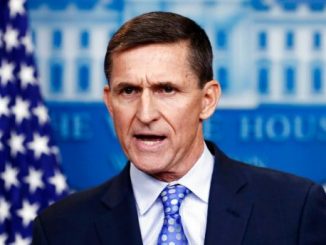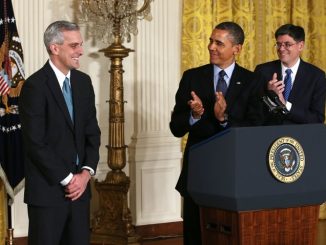
The House Intelligence Committee is shutting down its contentious investigation into Russian interference in the 2016 presidential election, the top Republican leading the probe announced on Monday.
The committee will interview no more witnesses and Republicans are in the process of preparing their final report, Rep. Mike Conaway (R-Texas) told reporters. A draft of that roughly 150-page report will be delivered to committee Democrats for review on Tuesday.
The draft document asserts that there is no evidence of collusion between the Trump campaign and the Russians, the most politically charged question examined by the committee.
It will also contradict an official U.S. intelligence community assessment that Russian President Vladimir Putin showed a “preference” for Donald Trump during the race — another assertion that Trump, now president, has disputed.
“We found no evidence of collusion,” Conaway said Monday. “We found perhaps some bad judgment, inappropriate meetings, inappropriate judgment in taking meetings — but only Tom Clancy could take this series of inadvertent contacts, meetings, whatever, and weave that into some sort of a spy thriller that could go out there.”
Further, he said, “we couldn’t establish the same conclusion that the CIA did that they specifically wanted to help Trump.”
The announcement is unlikely to herald any bipartisan conclusion to the central questions in an investigation that for more than a year has been mired in investigatory offshoots, leaks and bitter fighting between committee members.
Republicans have said for months that they were ready to wind down the investigation, having found no evidence of collusion. Democrats paint a different picture, warning that Republicans are protecting the president by failing to conduct a serious investigation.
Conaway said Monday that he expects Democrats to make “extensive changes” to the draft report Republicans will deliver on Tuesday. Lawmakers from both parties have long said that Democrats would likely issue their own report.
The GOP report will confirm a broad-based Russian active measures campaign designed to sow discord during the 2016 presidential race, as well as a “lackluster” pre-election response to that campaign.
It will also include “how anti-Trump research made its way from Russian sources to the [Hillary] Clinton campaign,” an apparent reference to the controversial dossier of opposition research on Trump compiled in part by former British spy Christopher Steele, who was hired by the research firm Fusion GPS.
“We will say that there was an attempt to use foreign sources with respect to the Clinton campaign,” Conaway said.
“It was clear that it there was — at least Steele and however much he talked and didn’t talk to Russians — that’s foreigners and that information was paid for by the [Democratic National Committee] and the Clinton campaign,” Conaway said, adding, “I don’t have any direct evidence that they knew about it.”
The GOP report will also include a section covering what the committee believes were criminal leaks related to the dossier, though Conaway said that the committee lacked the evidence to make a criminal referral to the Justice Department.
The draft report also includes recommendations for both Congress and the executive branch, centered on election security, government response to cyber-attacks and support to European allies.
The investigation, launched in January of 2017, is coming to a close after lawmakers reviewed more than 300,000 documents and interviewed 73 witnesses, including former White House chief strategist Stephen Bannon, Donald Trump Jr. and Trump’s son-in-law and senior adviser Jared Kushner.
As initially conceived, the probe was tasked with four investigatory pillars, including the Russian interference effort, the government’s response to that campaign, leaks of classified information related to those matters and any ties between Russia and “individuals associated with political campaigns.”
Despite regular outbreaks of internecine fighting, the investigation has produced one of the most significant public developments in the Russia saga to date: It was at a public committee hearing that then-FBI Director James Comey revealed that the bureau was investigating the matter.
In a dramatic moment, Nunes stepped back from leading the investigation amidst a now-closed Ethics Committee investigation into whether he revealed classified information during an impromptu press conference last spring.
It was then that Conaway took over investigation, though Democrats have complained that Nunes continued to assert his authority behind the scenes. Nunes has insisted the Ethics investigation, which cleared him of any wrongdoing, was a political sham.
Relations on the panel were further rocked earlier this year when committee Republicans forced the publication of a formerly classified memo prepared by Nunes’s staff alleging surveillance abuses, over the objections of both Democrats and the FBI.
Although Democrats were later permitted to release their own countermemo, they have since called on Speaker Paul Ryan (R-Wis.) to remove Nunes from his post as chairman.
Committee Republicans have said that the investigations into surveillance abuses are separate from the Russia probe. Those reviews are ongoing, Conaway said Monday.
The panel has also been split by disputes over subpoenaing witnesses. Democrats have complained that Republicans have allowed witnesses to set the parameters of their testimony at the behest of the White House, a characterization disputed by Conaway on Monday.
“Broad statement, you use subpoenas when you think you can actually get something from them, and we’re not particularly confident that the subpoena process will get us any more than we had,” he said. “We also think we have the evidence we need to come to the conclusions we’ve come to.”
The committee will not pursue steps to enforce the subpoena of Bannon, who frustrated both Republicans and Democrats by refusing to answer questions outside of the 25 scripted by the White House during a pair of interviews this year.
The raucous investigation in the House has been dramatically different from parallel probe underway in the Senate Intelligence Committee, which has largely kept its work under wraps and whose leaders have presented a united front.
The Senate panel’s work is ongoing. Its first product, a report on election security, is expected to be released in the coming weeks.
Conaway on Monday declined to set a timeline for the public release of the House report, which must first be sent back to the intelligence community to be scrubbed for classified information.
He said the report would not be shared with the Senate Intelligence Committee before publication.






Be the first to comment